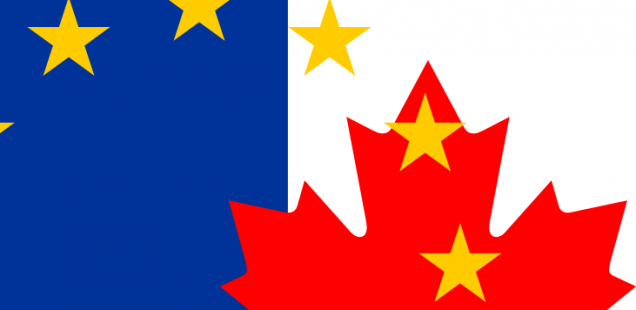The CETA IPR-Chapter Controversy | PirateTimes

The CETA IPR-Chapter Controversy
When discussing the aftermath of ACTA, another acronym tends to pop up: CETA.
CETA stands for ‘Comprehensive Economic and Trade Agreement’ and it is a bilateral international contract, in the making since 2008, between Canada and the European Union. These types of bilateral agreements, to foster trade and economic ties between the EU and other countries, are a rather typical thing in EU foreign relations. It is also not unprecedented that these trade agreements contain provisions for issues not directly related to their primary goals of reciprocally increasing economic benefits through free trade. A more recent example was the European Union – South Korea Free Trade Agreement from 2009 which, among others, included provisions concerning worker’s rights, environmental protection and intellectual property rights (IPR).
At it’s core, CETA is a bilateral free trade agreement. However, it is suspected to include controversial IPR provisions comparable to ACTA. Photo: CC-BY-NC-ND Gord McKenna
What makes CETA stand out are certain details coming from a leak of the draft agreement dated February 2012, which was widely publicised and criticised by Canadian law professor Michael Geist[1]. Several IPR related articles of CETA bear a striking resemblance to the corresponding articles in ACTA, including the much criticized involvement of private businesses in the copyright enforcement process. Another example is the “digital lock” rule, which aims to effectively make backup copies of legally bought CDs or the act of copying tracks to an mp3 player illegal. An additional concern, that is frequently voiced by Canadian CETA critics, is the potential increase of drug prices due to patent law harmonisation, an issue which also played a minor role in the anti-ACTA protests.The European Commission has since commented that the current draft of CETA is significantly different from the leaked version and supposedly takes the rejection of ACTA into account. It might, however, prove problematic for the Commission to convince the public of this without publishing the current draft, which it thus far has refused to do. It is true that a draft publication would be uncommon for an international negotiation of this kind. Democratic control in such cases is generally warranted solely by parliamentary approval as well as democratic legitimisation through elected governments of the participating countries. Due to the overwhelming public concern with these issues, the process is nonetheless perceived as lacking transparency. Furthermore, the appeasing statements from the European Commission concentrated on the inclusion of businesses in copyright enforcement, but made no mention of other subjects of criticism, such as digital locks, which further fuels suspicions about the controversial passages remaining in the text.
It is therefore not surprising that arguments against CETA are being voiced by many prominent anti-ACTA protesters. One example being the French net freedom organisation La Quadrature Du Net going as far as calling for a complete cancellation of CETA, or at the very least an exclusion of the controversial chapters from the treaty text.[2] The German NGO Digitale Gesellschafthas released a statement in the same spirit, including an appeal to the European Parliament to stand strong on its previous opposition to the corresponding ACTA articles.[3] These organisations can probably count on the support of all concerned Pirate Parties, on both sides of the Atlantic, for their protests.
Without a solution for these issues, it is likely that CETA will face a similar fate to ACTA. As with all international agreements the EU negotiates, CETA has to be approved by the European Parliament. If it, at that point, still contains phrases that were core reasons for rejecting ACTA, a ratification is unlikely to happen. The Members of the European Parliament will certainly not approve of being once again served the same paragraphs that they just rejected and which net activists and Pirate Parties will be sure to remind them of in the coming months. If it actually comes to this depends on the Canadian government and the European Commission. One option would be that they are willing to risk a failure of the whole agreement over provisions which were not even part of its original core intentions. Alternatively, they might consider the facilitation of trade a superior goal over affirming the status quo of the international copyright regime, which is drawing criticism from a growing number of people. After ACTA, which was also primarily aimed at preventing the counterfeiting of tangible goods, the danger of an otherwise relatively uncontroversial (apart from the drug price issue) international agreement failing completely, because of highly controversial internet and IPR chapters, will definitely seem very real.
About Paul Wardenga
I am a political science grad student at the University of Cologne with my interest focused on issues of European integration and EU politics. I’m trying to channel my activities within the Pirates accordingly, hence topics related to these issues will make up a large part of my work for the Pirate Times as well.
All content is CC-BY if not mentioned otherwise. Please link back to us if using content.
-
- Pingback: Flattr Appreciation During September Euro 20.49 | PirateTimes()













Recent Comments